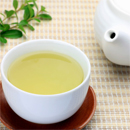 Here’s a health secret that could help protect you against age-related diseases as you get older. Try adding a little more polyphenols to your diet. Polyphenols are antioxidants found in a number of healing foods, such as green tea and grapes.
Here’s a health secret that could help protect you against age-related diseases as you get older. Try adding a little more polyphenols to your diet. Polyphenols are antioxidants found in a number of healing foods, such as green tea and grapes.
Polyphenols protect you in two ways. First, they protect your cells and body chemicals against damage caused by free radicals (free radicals are reactive atoms that contribute to tissue damage). For example, when LDL (“bad”) cholesterol is oxidized, it can become glued to arteries and cause heart disease.
Polyphenols can also block the action of enzymes that cancers need for growth and they can deactivate substances that promote the growth of cancers.
Recently, a group of German researchers studied the effects of five polyphenols on the process of “autophagy.” You’re probably wondering what autophagy is. Autophagy is a process that helps to maintain cell growth, development and homeostasis. This involves all aspects of the life cycle of your cells, from creating new cells, to cells degrading and dying, to recycling cellular material.
The German scientists were particularly interested in the degradation process. In animals (like us), autophagy works as a sort of quality control expert by removing waste or excess proteins and other substances. Impaired autophagy and the age-related decline of this pathway open the door for disease to take hold. When the autophagy process isn’t working like it should, you could suffer from Alzheimer’s or cancer, for example.
The researchers tested various polyphenols and came up with a list that they say can be used as dietary countermeasures in the fight against age-related disease:
1. Resveratrol: This polyphenol is great for lowering cholesterol and fighting off cancer.
2. Catechins: Found primarily in green tea, this polyphenol is a potent antioxidant that could play a role in preventing cancer and heart disease.
3. Quercetin: Found in red wine, citrus, onions, parsley, it is an antioxidant that could help prevent allergies, prostate inflammation, interstitial cystitis, atherosclerosis, and cataracts.
4. Silibinin: Found in many herbs (especially milk thistle), silibinin is a strong antioxidant that could help stave off lung, colon, oral and prostate cancer.
5. Curcumin: An extract obtained from turmeric that is an antioxidant, chemoprotective and anti-inflammatory. Curcumin could help with the treatment of digestive disorders and hyperlipidemia.
To learn about how curcumin could protect your brain from age-related decline, read the article, Curcumin Battles Memory-destroying Plaque.
